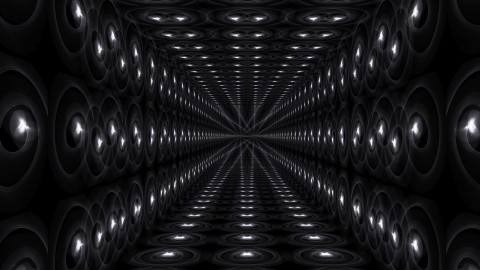The Observer Is The Observed
A statement by J. Krishnamurti that “the observer is the observed.”
The statement that “the observer is the observed” is one of the most significant things ever said by any man on the earth. The statement is as extraordinary as J. Krishnamurti was.
It is difficult to understand it only intellectually, because the way of the intellect is dialectical, dualistic.
On the path of intellect the subject can never be the object, the seer can never be the seen. The observer cannot be the observed. As far as intellect is concerned, it is an absurd statement, meaningless – not only meaningless, but insane.
The intellectual approach towards reality is that of division: the knower and the known have to be separate. Only then is there a possibility of knowledge between the two. The scientist cannot become science, the scientist has to remain separate from what he is doing. The experimenter is not allowed to become the experiment itself. As far as intellect is concerned, logic is concerned, it looks absolutely valid.
But there is a knowledge that passeth understanding, there is a knowing that goes beyond science.
Only because that kind of knowing which goes beyond science is possible, is mysticism possible, is religiousness possible.
Let us move from a different direction. Science divides the whole of human experience and existence into two parts: the known and the unknown. That which is known today was unknown yesterday. That which is unknown today may become known tomorrow, so the distance is not impossible, unbridgeable. The distance is only because man’s knowledge is growing, and as his knowledge grows the area of his ignorance diminishes. In other words, as he knows more, the area of the unknown becomes less and the area of the known becomes bigger.
If we follow this logic, the ultimate result will be that one day there will be nothing left as unknown.
Slowly, slowly, the unknown will change into the known, and the moment will come when there is nothing left as unknown. That is the goal of science, to destroy ignorance – but to destroy ignorance means to destroy all possibilities of exploration, all possibilities of the unknown challenging you to move forward.
The destruction of ignorance means the death of all intelligence, because there will be no need for intelligence anymore. It will be simply something which was useful in the past – you can put it in a museum – but it is of no use anymore. This is not a very exciting picture.
Mysticism does not agree with science, it goes beyond it.
According to mysticism, existence and experience is divided into three parts: the known, the unknown, and the unknowable. The known was unknown one day, the unknown will become known one day, but the unknowable will remain unknowable; it will remain mysterious. Whatever you do, the mystery will always surround existence. The mystery will always be there around life, around love, around meditation.
The mystery cannot be destroyed.
Ignorance can be destroyed, but by destroying ignorance you cannot destroy the miraculous, the mysterious.
J. Krishnamurti’s statement belongs to the unknowable.
Tags: Become An Observer Mind Process Tao Is One The Observer Is The Observed Wakeful Intelligence Witnessing Self










